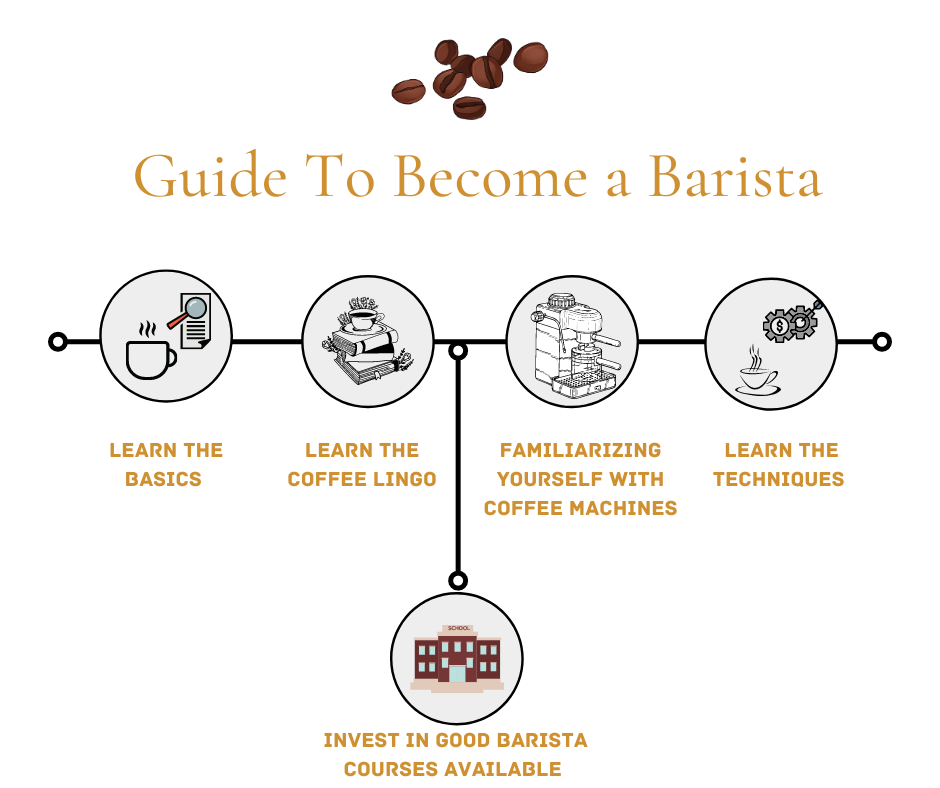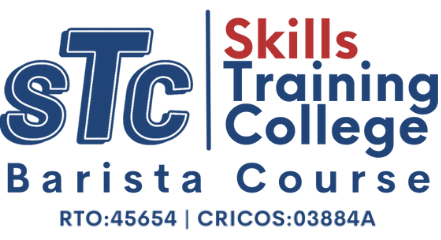The appeal of working in a coffee shop attracts many people across all age ranges. There’s the café ambiance, the lightning, the smell of freshly ground coffee beans and the hip co-workers. Who hasn’t dreamt of working as a barista?
Being a barista is a solid career choice for anyone with a passion for coffee and coffee-making. It is a rewarding but sometimes challenging job. There is a steep learning curve when you are starting out, and it can seem a little intimidating for beginners.
Fear not as everyone has their own path to becoming a barista. Along your way to becoming one, you will find that passion will help you claw your way to the top. Passion and dedication to the coffee-making craft are essential.
A barista usually works in cafes, coffee houses, coffee shops and prepares caffeine beverages and food items. They interact with customers in a personable manner and make whatever sort of coffee that the customer wants.
The barista is the go-to person for customers who want to try new styles of coffee. Baristas know how to make all coffee styles. The barista also responds to constructive feedback from new and regular customers and makes their coffee according to their preference.
If you are intrigued about becoming a barista with no prior experience, here is a guide to help you become one.

Learn the basics
For beginners, you will need to learn the basics of coffee making.
Learn the coffee lingo.
Don’t know the difference between a vanilla espresso and a flat white? Study up on the common terminology that relates to coffee and barista responsibilities. For example, learn about the different types of coffee and their meaning, including the very common cappuccino, Americano, espresso, macchiato, or latte.
Familiarize yourself with the machines.
Being a barista will require you to work with a wide range of coffee-related machinery and equipment. You will need to understand how to use, maintain, and clean them after every use. Know what a grinder is, as they are arguably the most essential part of the coffee-making process.
Next up is the traditional espresso machine, which is a big, impressive-looking kit that has a steaming function for your milk. It is more than just a fancy-looking kettle. This machine has adjustable settings that create the perfect conditions for brewing your coffee.
There are many other machines and equipment you need to learn in your role as a barista.
Learn the techniques.
There are many coffee-making techniques you need to grasp and eventually master if you want to be a highly-skilled barista. We touched on grinding earlier, but next on the list is tamping. It is where you press a coffee tamper down onto the ground coffee with a portafilter.
Another technique a barista should learn is the different milk foaming techniques. You should be able to make steamed milk to silky, shiny perfection and pour it in an espresso shot. End it with a perfect rosetta or a rippled heart for a perfect presentation.
Do your research. There is nothing worse than being unprepared on the job. If you are unsure of anything, ask the senior baristas.
Invest in Barista Training
Knowledge. Quality. More success. More business.
This is what barista training is all about. The role of the barista is fundamental in the success of the coffee-making process. The barista has to ensure consistency from cup to cup to ensure the customers remain loyal every day.
Training ensures that all staff members follow the same procedures with every cup of coffee they serve to customers. They learn to understand that customer satisfaction is the top priority.
Investing in barista training makes them the best in the field. There is a study that links employee training to greater staff loyalty and lower turnover. When employees feel that employers offer them a career path and provide them with new skills, it motivates them to work harder. They see value in the barista training and appreciate that their employer wants them to develop their skills. In return, they start to see their job as a long-term career that can offer them the progression they want. In other words, training can be an excellent investment for a business in the long run.
There is a range of barista courses available to prospective baristas. Barista training will allow them to hone their skills and learn how to make all the varieties of coffee. Getting a barista certification gives you the professional credibility to work in any coffee store.
Land the job
Now that you are a coffee lingo expert and have the training that goes with it, you are ready to go forth and become a barista. Here are some tips for landing your first barista job.
- When browsing job listings for a barista role, read the qualifications section carefully. Some local coffee shops do not require previous experience and are willing to provide training.
- Big coffee shops chains like Starbucks usually do not require previous experience. Start with applying to them and then move to a local coffee shop once you have months of experience under your belt.
- You can become a barista without experience so long as you seem confident, knowledgeable, and eager to work. Print out your resume, put on that winning smile, and good luck!
The key to having a rewarding and successful career as a barista is the combination of passion for coffee and people. We hope that this beginner’s guide will give you pointers on where to start on your journey to crafting cups of coffee. From a small-time café to big shot hotels, we are sure these tips will help you on your coffee-making journey.
Happy caffeinating!
